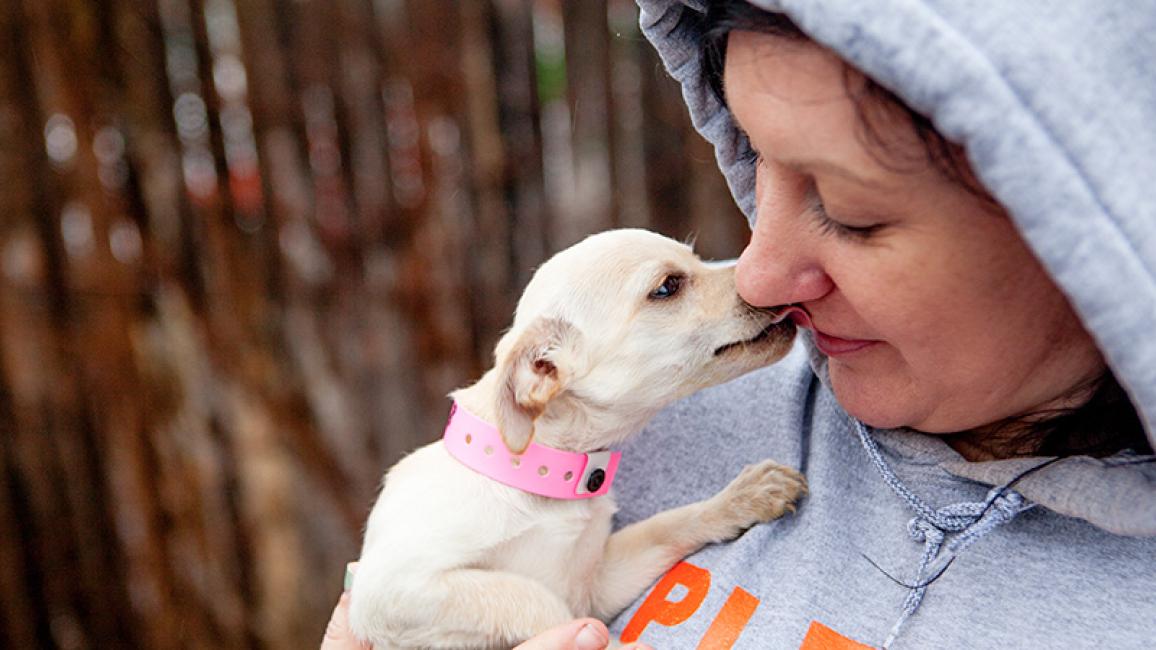There is no such thing as a local emergency

“It’s everyone’s emergency.” That was how one of our staff members summed up how people were responding to the horrible freeze in Texas and across so many states. Not Texas’ emergency, or Oklahoma’s emergency, or Oregon’s emergency, but everyone’s emergency, and everyone was volunteering to help in any way they could. Frankly, I couldn’t imagine a better description of Best Friends’ approach to lifesaving.
In my blog last week, I talked about our initial response to the storm in Texas, which actually began before the weather hit. We contacted every shelter in Texas and activated more than 2,000 Best Friends Network partners to assist with our response efforts. We immediately began supplying those in need with food, cat litter, heaters, crates, whatever they needed, and we began assisting with transports of animals out of the worst-hit areas.
Meanwhile, some interesting things started to happen. Some shelters were surprised we contacted them. A couple of shelters asked, “How did you even know we were here?” Well, like I talked about in my last blog post, we made it our job to know the location of every shelter. We can’t achieve no-kill nationwide by 2025 if we don’t know where the shelters are. And then there were the ones who said, “No one ever asks me what I need; I’m the one always offering to help. Thank you.”
But here’s my favorite response: “We’re fine, but I know that the shelter in the next town needs cat food, so please help them.” So that’s what we did.
As expected, now that the weather is returning to normal and the damage is being assessed, the emphasis is on getting as many animals as possible out of the shelters. This will free up staff to make repairs and support the animals and families in the communities who have been affected by the event.
Fortunately, just like we saw with COVID-19, the local communities are stepping up to foster and adopt. But with so many of the shelters closed for intake during the freeze, a lot of strays were taken in by people in the community and fostered until phones or the internet was back up and the owners could be located. This is exactly what community-supported sheltering is, and a huge component of what will get us to no-kill across the country.
Everyone’s emergency.
As we anticipated, the need for transfers has increased, and our emergency response team and network partners are transporting or arranging the transport of pets out of Texas to destinations spanning the West, from Los Angeles to Washington state, and the East, from Georgia to New York City, with countless stops in between. But the number of animals being transferred doesn’t come close to the number of network partners willing to take animals in, or the number of volunteers and partner organizations conducting the transports. Many outbound dogs and cats are longer-stay animals who are headed to areas of the country where their chances of adoption are better.
When Best Friends was founded in the mid-1980s, about 17 million dogs and cats were killed in shelters every year. And now that this number is around 625,000 annually, we know we didn’t get this far alone. We know that it will take an even more collaborative effort to get that number to zero in the next four years. We know that through community-supported sheltering, our 3,300-plus network partners, 12,000-plus grassroots advocates, innumerable volunteers, coalitions, supporters and like-minded community members, government officials and animal welfare organizations, we’ll get over the finish line.
There’s an old saying: Many hands make light work. As we saw after Hurricane Katrina and Hurricane Harvey, during COVID-19 and our ongoing response, during the freeze in Texas, and in all our programming, coalitions and operations throughout the country, people know that the welfare of pets is everybody’s emergency. And with everybody pitching in, together we will Save Them All.
